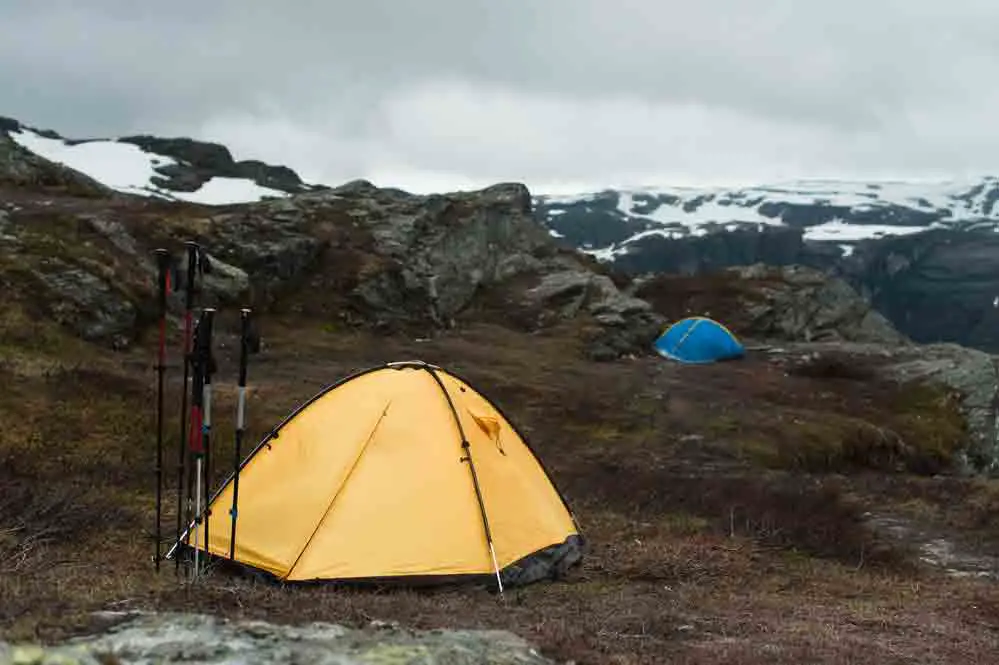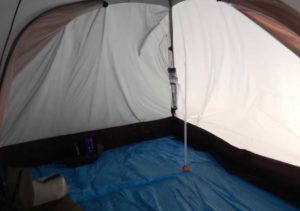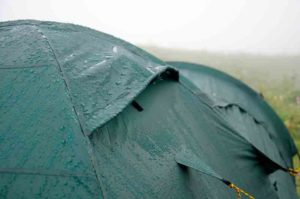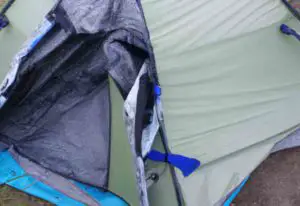When it comes to choosing a backpacking tent, one of the most important factors to consider is weight. Heavier tents can be cumbersome and difficult to carry, while lighter tents are easier to transport but may not be as sturdy or weather-resistant. In this blog post, we will discuss the pros and cons of different weight options for backpacking tents, so that you can make an informed decision about which type is right for you.
What Factors Should You Consider When Choosing a Backpacking Tent Weight?
One of the most important factors to consider when choosing a backpacking tent weight is the type of terrain you will be camping in. If you are planning on camping in an area with lots of trees, rocks, and other obstacles, a heavier tent may be necessary to provide adequate protection from the elements. However, if you are planning on camping in an open field or another relatively level area, a lighter tent may be sufficient.
Another important factor to consider is the weather conditions you anticipate during your trip. If you are expecting strong winds or heavy rain, a heavier tent may be necessary to provide stability and keep you dry. However, if you are expecting milder weather conditions, a lighter tent may be sufficient.
Finally, you should also consider your personal preferences when it comes to weight. If you are comfortable carrying a heavier tent, then by all means choose one that is on the heavier side. However, if you prefer to travel lighter and do not mind sacrificing some weather protection or durability, then a lighter tent may be the better option for you.
What Is Lightweight for A Tent?
When you are headed out on a camping trip, weight is an important factor to consider. The lighter the weight of your gear, the easier it will be to carry. When it comes to tents, there are a few different factors that contribute to the overall weight.
First, the materials used to construct the tent will have an impact. For instance, a tent made with aluminum poles will be heavier than one made with fiberglass or carbon fiber poles. Additionally, the size and features of the tent will also affect weight.
A smaller tent with fewer bells and whistles will typically weigh less than a larger, more feature-packed model. Finally, the type of fabric used for the tent’s rainfly and walls will also play a role in determining weight.
In general, tents made with lighter-weight fabrics will weigh less than those made with heavier fabrics. When shopping for a tent, be sure to keep all of these factors in mind to choose the right model for your needs.
What Are the Pros and Cons of Lighter Weight Tents?
Pros:
- Lighter tents are easier to carry and transport, which can be a major advantage if you are hiking long distances or traveling by public transportation.
- They are also typically more compact and easier to set up than heavier tents.
Cons:
- Lighter tents may not provide as much weather protection or durability as heavier tents.
- They may also be more prone to damage from obstacles such as rocks and branches.
What Are the Pros and Cons of Heavier Weight Tents?
Pros:
- Heavier tents typically provide more weather protection and durability than lighter tents.
- They are also less likely to be damaged by obstacles such as rocks and branches.
Cons:
- Heavier tents can be more cumbersome and difficult to carry, which can be a major disadvantage if you are hiking long distances or traveling by public transportation.
- They may also be more difficult to set up than lighter tents.
So, camping experience.
How to Decide Which Weight Is Right for You?
Ultimately, the decision comes down to personal preference and the specific needs of your trip. If you are planning on camping in an area with lots of obstacles and inclement weather, a heavier tent may be necessary. However, if you are planning on camping in a more open area or under milder conditions, a lighter tent may be sufficient. Choose the weight that best suits your needs and preferences, and you will be sure to have a comfortable and enjoyable
Conclusion
When it comes to choosing a backpacking tent, weight is an important factor to consider. Lighter tents are easier to carry but may not provide as much weather protection, while heavier tents may be more difficult to transport but offer more protection from the elements. Ultimately, the decision of which weight is right for you depends on the specific needs of your trip. Consider the terrain, weather conditions, and your personal preferences when making your decision, and you will be sure to choose the best option for you.
How Heavy Is Too Heavy for Backpacking Tent?
There is no definitive answer as to what weight is too heavy for a backpacking tent. Ultimately, it depends on the individual and the type of camping or backpacking he or she plans to do. Some people may be comfortable carrying a heavier tent for short distances, while others may prefer a lighter option for longer hikes. It is important to consider all of the factors involved when choosing a backpacking tent, including weight, to ensure that you select the best option for your needs.
Who Makes the Lightest 2-Person Backpacking Tent?
Some tents that are designed for backpacking are ultralight, weighing in at around two pounds. The Big Agnes Fly Creek HV2 Platinum Tent is one example of an ultralight tent. It weighs 1.92 pounds and can accommodate two people.
The MSR Hubba Hubba NX Tent is another example of a lightweight tent. It weighs 2.46 pounds and can also accommodate two people. This tent is made with durable fabrics and features a rain-resistant design, making it ideal for backpacking trips.
Is the Hubba Hubba Worth It?
The Hubba Hubba is a double-sided hammock designed for two people. It is made with breathable, waterproof, and fast-drying mosquito netting to provide a comfortable and bug-free experience while camping or hiking.
Overall, the Hubba Hubba is a well-made and durable hammock that is perfect for couples who want to spend time outdoors together. However, it is expensive compared to other hammocks on the market, so it may not be worth the cost for some people.








